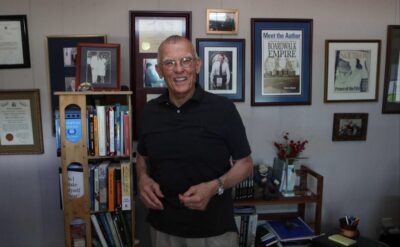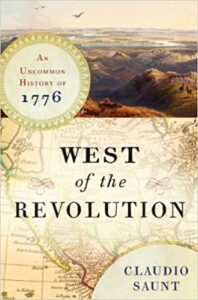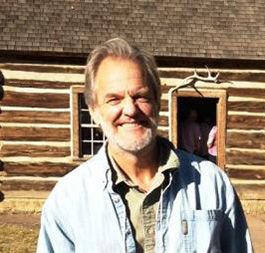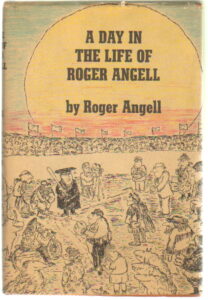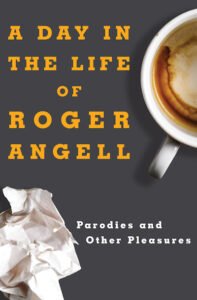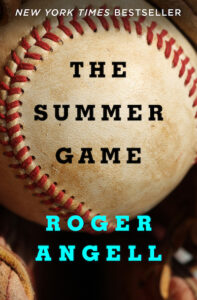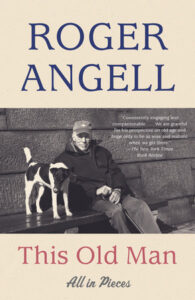Nelson Johnson: Darrow’s Nightmare-The Forgotten Story of America’s Most Famous Trial Lawyer
July 12, 2021 by David
Filed under Non-Fiction, WritersCast
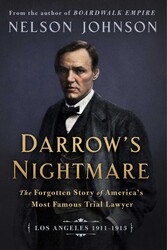 Darrow’s Nightmare: The Forgotten Story of America’s Most Famous Trial Lawyer (Los Angeles 1911–1913) – Nelson Johnson – 9781948122733 – 360 pages – April 20, 2021 – Hardcover – Rosetta Books – ebook editions available at lower prices
Darrow’s Nightmare: The Forgotten Story of America’s Most Famous Trial Lawyer (Los Angeles 1911–1913) – Nelson Johnson – 9781948122733 – 360 pages – April 20, 2021 – Hardcover – Rosetta Books – ebook editions available at lower prices
One of the great personal joys that working in the book business enables is that I get to work with authors. I’ve done some consulting with Rosetta Books, the publisher of Darrow’s Nightmare, and through the publisher have had the opportunity to meet and get to know former New Jersey judge Nelson Johnson, who turns out to be a terrific person, as well as a wonderful storyteller, historian, and writer.
I had known of Nelson Johnson mainly because his earlier best-selling book, Boardwalk Empire, became the basis of the excellent HBO series of the same name. Boardwalk Empire documents the tumultuous story of the Atlantic City in the early twentieth century, a time when racketeers and corrupt politicians ran the city. Boardwalk Empire is a terrific book with incredibly interesting characters and clearly, Nelson Johnson knows how to write history that conveys characters and their stories dramatically for readers.
In Darrow’s Nightmare, Nelson turns his attention to Clarence Darrow, one of the greatest trial attorneys in modern American history, in one of the most tumultuous and challenging episodes of his long career. Best known today for his role in the famous Scopes trial of 1925 (and the film, Inherit the Wind), Darrow was actually most famous in his earlier years as a brilliant defender of labor rights, at a time when organized labor was literally battling with business owners across the country for basic freedoms and policies we take for granted today.
In 1911, Darrow went to Los Angeles with his wife, Ruby, at the behest of union leaders there. He was to defend two union iron workers who had been charged with the murder of twenty employees of the Los Angeles Times, whose building had been bombed as part of a major labor dispute.
After he negotiated a plea bargain for the iron workers (with the help of Lincoln Steffens), Darrow himself was indicted for attempted bribery of a juror in the trial. Darrow was fortunate to be represented by the brilliant (though flawed) California criminal attorney Earl Rogers, who was himself one of the most successful trial attorneys in American history and with the help of Rogers and friendly juries, Darrow was able to escape being convicted in two different trials. He returned to Chicago in disgrace, set himself to rebuilding his career, and went on to take on some of what are now the most famous trials of his era, including the Leopold and Loeb case and the important civil rights Sweet case in Detroit, where he defended the right of a black family to self-defense. Looking over the arc of Darrow’s long legal career, the LA trials of 1911-1913 form the most crucial episode of his life.
These trials made national news at the time, but have been mostly lost to history now. Nelson has brought the entire scene to life in memorable prose. He may be one of the few who have read the entire 8,500 page trial transcript. It is quite a story and well worth reading. And Nelson tells the story behind the story in the podcast episode presented here, which I very much enjoyed recording.
Darrow captured the imagination of many Americans in his time in history. I think that reading Darrow’s Nightmare, you might be captured as well, and see him as a flawed hero, a human being much more complex than any film could portray.
“The marks of battle are all over his face” —H.L. Mencken
“A fascinating portrait of Clarence Darrow as we’ve never seen him before—as a criminal defendant. In Darrow’s Nightmare, Nelson Johnson tells the riveting tale of America’s most famous lawyer as he fights for his life, marriage, career, and reputation. I couldn’t put it down.” —Terence Winter, Creator & Executive Producer, Boardwalk Empire
Nelson C. Johnson practiced law for 31 years prior to being appointed to the New Jersey Superior Court. During his final five years on the bench, he was one of three judges in New Jersey assigned to litigation, involving product liability claims. In the early 1980s Nelson represented the Atlantic City Planning Board when the modern casino period was beginning. That experience motivated him to write Boardwalk Empire. He has written two other books about New Jersey history. During the past 15 years, Nelson has made more than 200 presentations on his books before a wide range of audiences.
He lives in Hammonton, New Jersey.
Buy the book here from Bookshop.org. Visit the author’s website here.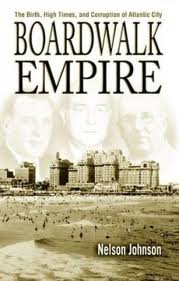
Podcast: Play in new window | Download
Ross Benes – Rural Rebellion: How Nebraska Became a Republican Stronghold
June 4, 2021 by David
Filed under Non-Fiction, WritersCast
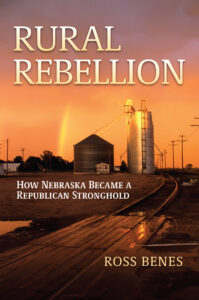 Rural Rebellion: How Nebraska Became a Republican Stronghold – Ross Benes – 9780700630455 – hardcover – University Press of Kansas – 256 pages – $29.95 – January 26, 2021 – ebook versions available at lower prices
Rural Rebellion: How Nebraska Became a Republican Stronghold – Ross Benes – 9780700630455 – hardcover – University Press of Kansas – 256 pages – $29.95 – January 26, 2021 – ebook versions available at lower prices
Ross Benes is a journalist and author who now lives in New York City. But he was born and raised in a tiny town in Nebraska. That experience shaped his early worldview, and of course also makes him suited to understand and explain the culture and politics of his home state to the rest of the world. As the book subtitle lays out, he’s after explaining how Nebraska, like so many other midwestern and southern states, has gone from having a diverse electorate to being viewed as almost monolithically conservative in its views and policies. While the book is focused on Nebraska, much of what he describes about the political culture of his home state broadly applies to much of the rest of our contentious country.
Nebraska may be quite similar to many other midwestern states, but as Benes explains, Nebraska has a long history of populism and quite a commitment to direct democracy and even nonpartisanship. This makes it even more curious to try to understand what has happened there over the past twenty five or more years.
Nebraska is, except for its urban and college town oases, as purely “Trump country” as it could be. As a native-born Nebraska who has broadened his horizons by living in (heavens protect us) the heart of liberal America and working for (even worse) the so-called “liberal media,” Benes may be an ideal interlocutor between these two wildly divergent Americas.
Rural Rebellion gives Benes the opportunity to document Nebraska, past and present, exploring its political history and current explores landscape through the lens of his own personal, family, and small town experiences. There is no question that he deeply cares for his home town and home state, despite the flaws he is determined to call out. In the course of writing this book, he interviewed family, friends, and fellow citizens as well as US senators, representatives, governors, state representatives in the uniquely Nebraskan unicameral governing body, and other political figures, all toward showing Americans not only how we got here, but what we might imagine doing by way of antidote. Benes remains clear-eyed about the difficulty of any sort of success in “healing” the rifts in our body politic and culture. He wishes for a form of discourse that may literally be impossible in a world where some 30% of the overall population, and a much higher percentage of the Nebraska population, simply does not recognize the same reality as many other Americans. Fox News certainly deserves some of the credit, but as Benes points out, small town churches and their powerful anti-abortion, anti-“sin” worldview, and the lack of cultural diversity in rural communities are deeply rooted and provide much to explain how it is we got where we are today.
Benes has one foot rooted firmly in the state he grew up in, the other foot is planted in a completely different environment. Because he has experienced both nodes of our dissonant culture, he can see the full spectrum of our anguish. I am not sure anyone can resolve the differences though. And I do not believe that the “both sides” approach of traditional journalism really works anymore.
While it is certainly true that people in the Fox News dominated, evangelically oriented. semi-rural heartland are all too often viewed as stick figures by many who live in the more diverse and tolerant urban coasts, it is Fox and the church leaders who create imaginary portraits of the people with whom they disagree in outlook and belief, and the right wing now stokes a belief system that see fellow citizens as less than human to a degree that is impossible to excuse. This is not a situation where “both sides” are equally responsible.
In Rural Rebellion, Benes recounts real-life stories that help explain rural Americans’ attitudes about abortion, immigration, and the so-called big government they forget supports their agricultural successes. He also tells his own stories about how his views changed over time away from home, and crucially locates some of the reasons in the ways that what he was taught were impossible. While his argument – that Americans would be less hostile to one another if they just knew each other a little better – makes sense in theory, there are too many powerful forces at work that have a vested interest in keeping Americans at each others’ throats. We want to believe in the essential goodness of our fellow citizens, but there are those that are working diligently to prevent that from happening. No matter where you may fall in the spectrum of belief system, Rural Rebellion is quite useful and a valuable contribution to our socio-political discourse.
Ross Benes is the author of The Sex Effect (2017) and Sex Weird-o-Pedia (2019). He has written for Entertainment Weekly, Esquire, Lincoln Journal Star, Nation, Omaha World-Herald, Rolling Stone, Wall Street Journal, and others. In addition, he is an analyst at eMarketer. A native of Brainard, Nebraska (population 420), he now lives in New York City but still roots for the Nebraska Cornhuskers.
We had a terrific conversation about this book. I hope you enjoy it as well.
You can find the book for sale here at Bookshop.org.
“Rural Rebellion is informative whether or not you agree with the author’s political views. . . . Benes does a good job connecting past and present, and he asks many of the questions that historians are likely to ask when they look back on the early twenty-first century.” —Nebraska History
Podcast: Play in new window | Download
Anders Dunker: Rediscovering Earth
May 18, 2021 by David
Filed under Non-Fiction, WritersCast
 Rediscovering Earth: Ten Dialogues on the Future of Nature – conversations with Anders Dunker – OR Books – 9781682195086 – Paperback – 240 pages – $23 – ebook versions available at lower prices
Rediscovering Earth: Ten Dialogues on the Future of Nature – conversations with Anders Dunker – OR Books – 9781682195086 – Paperback – 240 pages – $23 – ebook versions available at lower prices
Thinking about how to think about climate, earth, humans on it, and the future, are major challenges for all of us who care about the future of our planet. It may be that most of us alternate between despair and rage, and even with an optimist’s outlook, we have trouble dealing with the sheer scope of what is happening to our surroundings (I think using the words “environment” and “earth” and “planet” has now become counterproductive).
I am constantly searching for writing, whether it is in books, online or in magazines, that will offer me constructive perspectives, different and hopefully better conceptual frameworks than those we have developed, toward making it possible to be both continually engaged and continually energized. I don’t usually feel I can do that on my own.
Anders Dunker’s collection of conversations with some of the deeper thinkers about the future and us in it, turns out to be very useful. The diverse viewpoints, the language of thoughtfulness and care, the commitment to inquiry, are all inspiring elements of this short book. And with such a diverse set of outlooks, it is possible to not lose sight of the core reason for this book to exist – to inspire hope.
Dunkers poses this question: “if we know that we are destroying the planet, our habitat, why do we continue to do it?” His dialogues attempt to investigate this question, and thereby come to some sense of how we might go forward, not ourselves alone, but the nature that we rely on, together.
This is the challenge we face right now. The challenge will be different in a few years, the unfolding story will force a reckoning. For now, those who read the stories in Rediscovering Earth will be able to come to a better sense of what we can and must do together in this moment.
Dunkers proposes that our future, nature itself, will be based on how we navigate the realm of culture, including philosophy, art and literature, the groundwork of our being, as much as or more than in scientific and technological matters. In order to act, we must redefine ourselves, become truly planetary citizens, and recognize how we are all connected, and then act upon, from that, understanding.
We had a terrific conversation, not only about the book and the contributors to it, but about how we will uncover the future and live in it together. A very hopeful experience. I came away from our talk fully energized, and feeling stronger.
Anders Dunker bio (from his website): Born in Norway, raised in the countryside in a family much dedicated to wildlife and nature. Educated in humanistic subjects and Cultural History at the University of Oslo, with Philosophy, Comparative Religion and Comparative Literature as main subjects. Teacher of Aesthetics and other subjects at the University of Oslo, Philosophy and Cultural History in Rome and Barcelona.
Senior lecturer at Kulturakademiet (Norwegian private college) for 10 years, now writer for acclaimed Norwegian & international newspapers and magazines (Le Monde diplomatique, LA Review of Books, NyTid, Vagant, Samtiden, Modern Times Review, Agora). Board member of the Norwegian Writers’ Climate Campaign,
Series Editor of Futurum Collection at Existenz Publisher (Norway) and Editorial Board Member at Technophany, a journal for Philosophy and Technology.
His current book projects include an essay on the future as seen from California and a volume on Peter Sloterdijk’s philosophy. Anders currently lives with his wife, an environmentalist and animalist singer, in Los Angeles, California. He is also a plein air painter.

From Dialogue One: “The Rediscovery of the Earth—with Bruno Latour”
Anders Dunker (AD): Historically, the age of discovery is over. Are we none the less in a new age—an age of rediscovery—that can lift our spirits and propel us past the nagging feelings of tragedy?
Bruno Latour (BL): Well, it is my way of being optimistic. It is my way of not taking part in the sense of doom. Scientifically and technically, it is perfectly rational to be a pessimist, but I don’t think it makes much sense politically. Optimism has nothing to do with technoscience—DNA plus cognitive science plus robots plus outer space. Instead it is connected with exploring the world we thought we knew. I will borrow the term from you and call our time period an age of rediscovery, even if it is grandiose. What we call local has quite a different meaning in relation to Gaia than it previously had. It now has many different dimensions. The rediscovery of a place is in some ways a cliché—since ecologists have been talking about the same thing for years—but this concept also leads to a different way of framing the world, it leads to another geometry, so to speak. Water gets another meaning. Ice gets another meaning. Industry is considered in relation to the amount of CO₂ in the atmosphere. We see things in new ways. Antibiotics have a different kind of globalization than weeds, for example.
AD: Traditionally, the concept of the local has had a flavor of subjectivity—existence circumscribed by the immediate horizon—in contrast to the scientific gaze, which purports to see everything as if from outer space?
BL: And here lies the error. The local is objective. The gaze from inside the critical zone is completely objective, it is just objective in a different way. What we see is real, but this reality only becomes visible if we learn what different parties are up to, what they need, what they want, what they can accomplish.
Buy the book directly from the publisher, OR Books.
Podcast: Play in new window | Download
Frank Figliuzzi: The FBI Way – Inside the Bureau’s Code of Excellence
May 5, 2021 by David
Filed under Non-Fiction, WritersCast
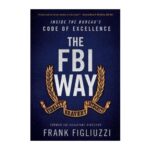 The FBI Way: Inside the Bureau’s Code of Excellence – Frank Figliuzzi – 9780062997050 – hardcover – HarperCollins – 272 pages – $27.99 – January 12, 2021 – ebook versions available at lower prices
The FBI Way: Inside the Bureau’s Code of Excellence – Frank Figliuzzi – 9780062997050 – hardcover – HarperCollins – 272 pages – $27.99 – January 12, 2021 – ebook versions available at lower prices
If you have been paying attention to the news for the five years since the US elevated Donald J. Trump to the presidency of the United States, with the help of Fox News, the Mercer family, the Koch brothers and their associates, Facebook, Twitter and other social media, aided further by the moral and intellectual bankruptcy of the Republican Party, the vapidity of the mainstream media, years of inattention to the teaching of American history and civics in schools everywhere, undergirded by a calculated, systematic conspiracy with the Russian government (that no doubt, was surprised by how easy it was to game the greatest democracy in the history of the world), you have seen and heard the former FBI agent, Frank Figliuzzi, on MSNBC and other news outlets, talking about the visible public corruption that was going on throughout this painful period of our lives.
For many of us who remember the fifties, sixties and seventies, when the FBI was a witting tool of a repressive political state, it has been more than disconcerting to suddenly see the FBI as an upstanding exemplar of a rule-abiding democracy – that is under attack from a right wing political party that used to (over) value the rule of law in service to the capitalist enterprise. That attack, surreal as it would seem, is a symptom of the “down is up” necessities of authoritarianism, which is where the Republican party has traveled to over the past few years. Trump was and is not the head of the beast, he was and is simply a tool used by a particular power center that found him as he found them, willing partners in a plan that serves their various contiguous but-not-entirely-shared needs and goals. Do not underestimate the war being waged against reality still going on in full force, even though the dumpster is no longer the head of state.
Which brings us back to the matter at hand. Frank Figliuzzi is a throwback to a world that too often does not still appear to be with us. The three words on the cover of his book are at the core of the FBI’s training and belief system: “Fidelity, Bravery, Integrity.” These principles mean everything to him. Cynical as so many of us are today, it is novel, and even heartening to meet someone who believes so deeply and completely in a moral system at a time when even honor systems all too often are not honored (West Point is a good example) and when elected officials so readily ignore their oaths of office. We need people who can remind us by the example of their behavior (and their words), that fairness, honesty, and justice can still exist in our society.
Figliuzzi is aware of this. He aims his book at leaders in businesses and other institutions, to demonstrate to them and all of us, the enduring power and value derived from following principles that honor and respect the people that work there, their stakeholders at every level, and the institutions themselves. As I started to read this book, I wondered how the FBI, as a law enforcement organization, could be stood up as a model for profit-making businesses and non-governmental organizations, but Figliuzzi is persuasive, and the ideas he communicates are indeed powerful. Many of the examples he provides to document why the FBI should be viewed as a model for others are surprising, as they demonstrate a commitment to deeply moral values, and to treating individual employees as human beings rather than simply as cogs in an inhumane machine.
“It’s times like these” that make books like this one crucial and important. It’s impossible not to be deeply affected by this book in ways that you might not have expected.
Figliuzzi is a smart guy, and as an experienced media figure, he knows how to tell a compelling story. I find myself somewhat surprised to say that The FBI Way is a useful and maybe even an important book for our times. I very much enjoyed our conversation and I trust you will as well, though I doubt anyone listening here will be signing up to join the FBI anytime soon.
“Figliuzzi’s war stories of hunting terrorists are spellbinding, but equally important is his playbook for how the FBI’s methods for achieving excellence in performance can be duplicated by a wide variety of organizations. This should be required reading in business schools across America.” – Andrea Mitchell, Chief Foreign Affairs Correspondent, NBC News
Author website here.
Buy the book here.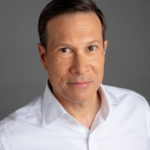
Podcast: Play in new window | Download
Unworthy Republic: The Dispossession of Native Americans and the Road to Indian Territory by Claudio Saunt
March 18, 2021 by David
Filed under Non-Fiction, WritersCast
 Unworthy Republic: The Dispossession of Native Americans and the Road to Indian Territory – Claudio Saunt – 97800393541564 – paperback – W.W. Norton – 416 pages – $26.95 – February 23, 2021 – ebook versions available at lower prices
Unworthy Republic: The Dispossession of Native Americans and the Road to Indian Territory – Claudio Saunt – 97800393541564 – paperback – W.W. Norton – 416 pages – $26.95 – February 23, 2021 – ebook versions available at lower prices
This is a book that should be required reading for all Americans. Even those of us who think we know the story of the Trail of Tears and other important efforts by our white antecedents to eliminate Indians from the eastern United States will learn from the incredibly well researched and carefully documented story told by a brilliant historian.
Unworthy Republic documents the reprehensible story of the “Indian Removal” of the 1830s, which resulted in the forced migration of Native Americans whose ancestral territories include what is now North Carolina, Georgia and Florida, and to a lesser extent Ohio and western New York state.
On May 28, 1830, the United States Congress authorized the forced expulsion of indigenous people then living in the east to a new Indian territory west of the Mississippi, under the false notion that they would be free to live their lives away from white settlers and farmers then pouring into their unceded lands.
The US government then set out to forcibly move at least 80,000 Native Americans from their homelands west, usually on foot, and always at their own expense. It was a disastrous undertaking that was shot through with fraud and a racist disregard for the health and well being of the Indians by the white citizenry and politicians who wanted to steal their land, as well as by the military that was used to administer and enforce the effort.
As Saunt exhaustively documents, fraud, intimidation, murder and theft were the common tools of the day. Rich planters and politicians created a fictional hypocritical story line to justify their greed and theft. In the course of the removals, many thousands of Native Americans were killed, many more suffered horribly, and almost all lost their lands and what few possessions they had at the time. In the end, the “removal” can be seen for what it was, an unofficial US policy of extermination constructed to benefit southern slave owning planters with the active participation and support of greedy financial speculators, mostly from New York.
In this book, Saunt makes three related core arguments: “The state-administered mass expulsion of indigenous people was unprecedented, it was a turning point for indigenous peoples and for the United States, and it was far from inevitable.”
It is impossible to read this book and to not be angered, even now that we are almost two hundred years removed from this decade of horror. The actual events that underpin the history ofd the United States must be reconciled with the manufactured myths that we use to tell our own stories to ourselves. It is not a matter only of white guilt (though there is nothing wrong, in my opinion, with guilt, if it can be harnessed to positive ends) nor is an intellectual hand wringing a useful response to learning the hard lessons of our history. What we can take from these stories is an understanding of how to be better at living our ideals, and transforming what we have been to something different, that gives voice to the actual people whose land we live on today. The acknowledgment of indigenous people can not be simply gestural. A book like Unworthy Republic must draw us closer to action – as Buddhists often point out – no one is free until all are free. The American correlation is that no one can live comfortably with the land until all of us do. Our history is with us still.
Finalist for the 2020 National Book Award for Nonfiction
Shortlisted for the 2020 Cundill History Prize
Named a Top Ten Best Book of 2020 by the Washington Post and Publishers Weekly and a New York Times Critics’ Top Book of 2020
Claudio Saunt is the Richard B. Russell Professor in American History at the University of Georgia. He is the author of award-winning books, including A New Order of Things; Black, White, and Indian; and West of the Revolution. He lives in Athens, Georgia. It was an honor for me to have the opportunity to speak with Claudio about this important and powerful book.
Author website here.
Buy the book here.
Podcast: Play in new window | Download
The Brothers Mankiewicz: Hope, Heartbreak, and Hollywood Classics by Sydney Ladensohn Stern
February 27, 2021 by David
Filed under Non-Fiction, WritersCast
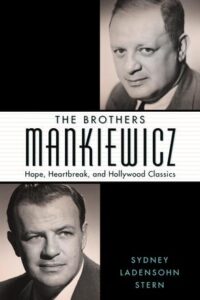 The Brothers Mankiewicz: Hope, Heartbreak, and Hollywood Classics – Sydney Ladensohn Stern- 9781617032677 – University Press of Mississippi – 480 pages – 88 b&w illustrations – October 2019 – Hardcover – $35 – ebook version available at lower prices
The Brothers Mankiewicz: Hope, Heartbreak, and Hollywood Classics – Sydney Ladensohn Stern- 9781617032677 – University Press of Mississippi – 480 pages – 88 b&w illustrations – October 2019 – Hardcover – $35 – ebook version available at lower prices
There are any number of characters and influencers in the history of modern American film-making, but among the many greats who contributed to its evolution into the dominant form of our popular culture, the Mankiewicz brothers stand out. Between them, they played critical roles in an incredible array of films that comprise our film canon today. Herman (1897–1953) and Joe (1909–1993) either wrote, produced, or directed (sometimes both or all) more than 150 films, from late era silents to almost modern era big budget productions.
Herman is credited with writing the screenplay for Citizen Kane with Orson Welles (though the amount of work done by each of them has long been disputed) and shared the picture’s only Academy Award. Joe won four Oscars altogether, including two for writing and directing All About Eve, which also was awarded Best Picture in 1950.
Both the older Herman and the much younger Joe started as writers and then became successful as producers and in Joe’s case as a director as well. They came to Hollywood as upwardly mobile children of immigrants, brilliant intellectually and wildly witty, and feeling extremely ambiguous throughout their careers about the value and importance of their work in film – concerned it seems, to not be recognized as serious artists, as their novelist and playwright friends had been. The conflict between art and popular culture defined their lives and caused them each great suffering.
Herman was an early member of the renowned Algonquin Round Table group of wits, and in his unhappiness and self destructiveness, frequently lost all his money gambling. He alienated all the major film studios, and was dead by the age of 55. At the same time that Herman was ruining his career, Joe found significant success as writer, producer, and director, although he was almost addicted to deeply felt romances with the stars he worked with, including Judy Garland, and Joan Crawford, causing terrible suffering to his wife and family.
Biographer Sydney Ladensohn Stern spent ten years in researching and writing this comprehensive portrait of twentieth century American film through the lens of two of its most important and compelling figures. She’s written a thorough and highly readable narrative that gives us a chance to understand the complexities of her characters, and for anyone with an interest in modern film history, this book will be irresistible. The Mankiewicz brothers are among the titans upon which the movie business was built – their writing helped to define the language we see now as emblematic of an entire era in American history. This was a very fun book for me to read and I very much enjoyed talking to Sydney about her book. I think you will enjoy hearing our conversation and you should read this book (now available as an audiobook too).
“one of the best of the recent biographies of screenwriters … One thing I love about her book are the footnotes that trace the lineage of some of the great Mank stories (“The white wine came up with the fish” and “Imagine that, the whole world wired to Harry Cohn’s ass”…) ” –Tom Stempel
Sydney Ladensohn Stern worked as a reporter for Fortune and Money magazines and as an editor and award-winning columnist for the Scarsdale Inquirer before she started freelance writing. Her column, “Suburban Exposure,” covered politics and contemporary culture as well as her family and community, but she discontinued it after her sons left home and stopped providing her with material. She has freelanced for numerous publications including the New York Times. Her first biography is Gloria Steinem: Her Passions, Politics, and Mystique.
Author website here.
Buy the book here.
Podcast: Play in new window | Download
Surviving Genocide: Native Nations and the United States from the American Revolution to Bleeding Kansas: Jeffrey Ostler
January 12, 2021 by David
Filed under Non-Fiction, WritersCast
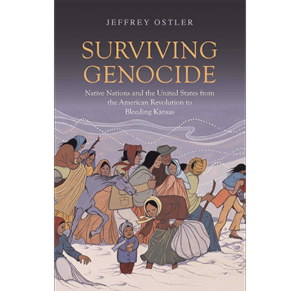 Surviving Genocide: Native Nations and the United States from the American Revolution to Bleeding Kansas – Jeffrey Ostler – 9780300255362 – Yale University Press – Paperback – 544 pages – September 22, 2020 – $25 – ebook versions available at lower prices
Surviving Genocide: Native Nations and the United States from the American Revolution to Bleeding Kansas – Jeffrey Ostler – 9780300255362 – Yale University Press – Paperback – 544 pages – September 22, 2020 – $25 – ebook versions available at lower prices
“A landmark book essential to understanding American history, Surviving Genocide is an act of courage. Ostler’s brilliant concept of reconstructing ‘an Indigenous consciousness of genocide’ is significant for its insight into how American Indians understood, discussed, and resisted genocidal threats to their families, communities, and nations. His modern vocabulary of ‘atrocities’ and ‘killing fields’ is not for political effect but appropriate to the brutal reality of Indian policy in American history.”—Brenda Child, Northrop Professor of American Studies, University of Minnesota
Even though many of us feel we are familiar with the story of the “settling” of America by Europeans and the dispossession of indigenous people, reading Jeffrey Ostler’s book, part one of a major two-volume history, will educate every single one of us to a better understanding of the full scope of the takeover of a continent by invading Europeans. Conquest and genocide are terms we seem unable to apply to our own history, preferring still a more sanitized version of the centuries long overwhelming of the people who lived here before Europeans arrived in force.
Ostler has spent years of research documenting the governmentally sanctioned use of force to remove or kill the indigenous people who were inconveniently in the way of the relentless expansion of the American republic. In this book he documents the losses from the violence – massacres, destruction of habitat and lifeways, diseases and cultural upheaval suffered sequentially by native peoples for hundreds of years as first colonial settlers and then Americans flooded the continent. This volume covers the story of the eastern United States from the 1750s to the beginning of the Civil War that set the stage for the post-Civil War expansion that is perhaps the better known narrative – buffalo, horses, trains, Crazy Horse and the Lakota being so much a part of popular culture imagery. As Ostler shows, the way this played out was not “inevitable” and Manifest Destiny was neither. The indigenous people were outnumbered, but often not out maneuvered or outwitted, and their ability to survive the nightmares of dispossession and attempted genocide is heroic.
As Americans, it is sometimes difficult to look at our own history with honesty. It is often said that the “original sin” of America is slavery, but I think we must grapple with the actuality that there are two essentially economic-based social and cultural wounds at the heart of the American project. First, there is the forced dispossession of the people who were on the land itself, and second, the forced migration and enslavement of Africans for the benefit of white Americans and their economic development. We must learn as much as we can about the history of the last five hundred years in North America in an unromanticized, clear-eyed effort to fully comprehend what our forebears did in the course of creating the American dream all of us are allowed thereby to enjoy. The truth in all its complexity should serve as counterweight to the false narratives and self-serving images we choose to live by, all created as a form of ongoing social control.
Indigenous people have survived despite the many attempts to extirpate them or to forcibly transform and bend their cultures into the conquerors’ image of what “civilization” looks like. Still, the traumatic effects of conquest need to be recognized, acknowledged and repaired and it would be no small thing to recognize formally that a genocide was in play, with all the social and political results that term carries with it. This book and presumably the subsequent volume in Ostler’s work, should help us move in that direction.
The book is well written, hard to put down and completely engrossing; its authoritative and well-researched approach makes it a powerful document and well worth your time to read.
I’m grateful for Jeffrey Ostler for taking the time to talk to me about this book and for Yale University Press for alerting me to it.
Jeffrey Ostler is Beekman Professor of Northwest and Pacific History at the University of Oregon and the author of The Lakotas and the Black Hills and The Plains Sioux and U.S. Colonialism from Lewis and Clark to Wounded Knee.
Podcast: Play in new window | Download
Why We Revolt: A Patient Revolution for Careful and Kind Care by Victor Montori MD
October 14, 2020 by David
Filed under Non-Fiction, WritersCast
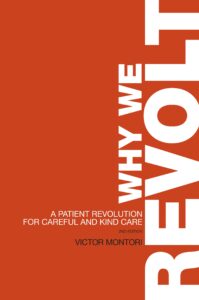 Why We Revolt: A Patient Revolution for Careful and Kind Care – Victor Montori, MD – 9781893005624 – Mayo Clinic Press – paperback – 192 pages – $14.99 – September 29, 2020 – ebook versions available at lower prices
Why We Revolt: A Patient Revolution for Careful and Kind Care – Victor Montori, MD – 9781893005624 – Mayo Clinic Press – paperback – 192 pages – $14.99 – September 29, 2020 – ebook versions available at lower prices
Victor Montori is an incredibly empathetic and kind clinician, whose commitment to creating a better form of health care than we have today in the United States shines through every page of this short, but extremely powerful book. Dr. Montori is an endocrinologist at the Mayo Clinic in Rochester, Minnesota. He is originally from Lima,Peru, where he went to medical school before coming to America for postgraduate study and staying here to practice medicine.
Why We Revolt was originally published as part of the work of his nonprofit organization, The Patient Revolution, and has now been published by the Mayo Clinic, where Dr. Montori is on staff. In the book, he gives us a practitioner’s view of how health care has become corrupted through corporatism and the industrialization of medical care. This conceptual framework resonates for me – modern medicine treats our bodies as products.
Dr. Montori points out that our medical/healthcare system makes doctors and patients accountable for “delivering care” instead of systematically supporting the work of caring. Our emphasis on efficiency requires the health care system to process instead of care for people. And that the emphasis on standardizing diagnosis and treatment alike disables the core caring relationship between doctors and other caregivers and the patient. As Montori puts it, the system “offers care for people like you instead of care for you.”
The book proposes that we build a health care system that is based not on greed but on solidarity – this is the revolutionary idea at the core of the book, one that is incredibly energizing and moving.
Dr. Montori proposes a transformational effort. Why We Revolt was written long before COVID19, of course, but the book clearly predicts how the response to COVID19 would favor the economic interests of medical industrial complex to profit from the pandemic. It also predicted policies that left ill patients away from loved ones, to suffer and die alone. It also predicted how clinicians, patients, and citizens would come together, going beyond personal self-interest and in support of our communities to help and to protect each other, resulting in the production of homemade masks and the nightly celebrations of healthcare professionals in major cities.
Why We Revolt very clearly documents how the American healthcare system has become both exploited and industrialized. The United States lags behind many other countries on patient outcomes, as the emphasis in our system is on profit rather than the core values of patient care. There is no question that change is needed and this book is a valuable stimulus and handbook for the change we can make together before the whole system collapses under the weight of capitalism.
This book should be an inspiration to physicians, policymakers, and of course to all of us who are patients. There is no question that we can find ways to transform our healthcare system to make it compassionate and humane and affordable for all.
Author proceeds from Why We Revolt go directly to Patient Revolution, a non-profit organization founded by Dr. Montori that empowers patients, caregivers, community advocates, and clinicians to rebuild our healthcare system one bit at a time.
Dr. Montori has received the Karis Award, a patient-nominated recognition for his compassionate care. A researcher in the science of patient-centered care, Victor and his colleagues have authored over 580 research articles. A full professor of medicine at only 39 years of age, Montori is one of the most cited clinical researcher in the world.
Victor is a passionate and powerful advocate for his work and for his ideas, and caregiving and kindness are central to him as a human being as well as a doctor. Speaking with him is inspiring, and I hope that through this podcast, you will enjoy this brief opportunity to hear him speak and yourself be inspired to help bring his ideas to fruition.
Buy the book from Bookshop.org to support independent booksellers.
Visit The Patient Revoution website for more information about Dr. Montori’s work.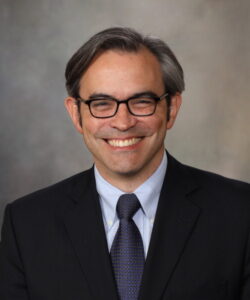

Podcast: Play in new window | Download
Writerscast: David Wilk interviews Roger Angell
October 1, 2020 by David
Filed under Non-Fiction, WritersCast
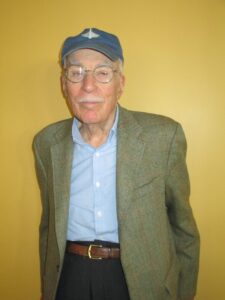 A couple years ago, in the process of researching the mostly unknown and under-appreciated New Yorker writer Robert M. Coates, I reached out to Roger Angell, who knew Coates during his many years of writing for and working at The New Yorker (and whose mother, Katharine Sergeant Angell White, and stepfather, E.B. White, knew Coates well from the earliest days of the magazine in New York and elsewhere). I wanted to learn as much as I could about Coates, and in the process, had the distinct pleasure of talking to one of the greatest writers of our time.
A couple years ago, in the process of researching the mostly unknown and under-appreciated New Yorker writer Robert M. Coates, I reached out to Roger Angell, who knew Coates during his many years of writing for and working at The New Yorker (and whose mother, Katharine Sergeant Angell White, and stepfather, E.B. White, knew Coates well from the earliest days of the magazine in New York and elsewhere). I wanted to learn as much as I could about Coates, and in the process, had the distinct pleasure of talking to one of the greatest writers of our time.
After telling me some interesting first-hand remembrances of Coates, Roger was kind enough to sit or an in-person interview with me in his apartment in New York along with his wife Peggy Moorman. It’s my honor to publish this interview now to celebrate Roger Angell’s 100th birthday. His prodigious, meticulous, and far-ranging memory is a match for his remarkable abilities as a writer.
Roger has always lived in New York City, and spent summers in Brooklin, Maine. He graduated from Pomfret School and Harvard University, served in the Air Force in World War II, first as an instructor in machine guns and power turrets, and then, in the Pacific, as an editor and reporter for the GI magazine Brief.
In 2014 Roger was inducted into the writers’ section of the Baseball Hall of Fame, and then in 2015 he was deservedly elected to the American Academy of Arts and Letters.
It is impossible to speak about and with Roger Angell without mentioning his writing about baseball, for which he is best known, including the classic books, The Summer Game and Five Seasons: A Baseball Companion, as well as a number of great shorter pieces that appeared first in the The New Yorker.
Angell’s earliest published works of short fiction and personal narratives. Several of these pieces were collected in early books, The Stone Arbor and Other Stories (1960) and A Day in the Life of Roger Angell (1970).
Roger first contributed to the The New Yorker in March 1944. He began writing about baseball in 1962, when William Shawn, then the editor of The New Yorker sent him to Florida to write about spring training and over the course of several decades produced some of the best baseball books ever written, inspiring countless readers with his brilliant descriptions of baseball games and players, and of course, fans of the game.
In a review of Once More Around the Park for the Journal of Sport History, Richard C. Crepeau wrote that “Gone for Good”, Angell’s essay on the career of Steve Blass,”may be the best piece that anyone has ever written on baseball or any other sport”.
While Angell has been praised fulsomely for his baseball writing, I’d prefer to think of him as simply one of the better literary stylists of our time. Listening to Roger Angell talk about books, writers and his writing life was one of the great pleasures of my own literary life, which I am pleased to share with you here.
Roger turned 100 on September 19, 2020. Happy Birthday Roger! And thank you and Peggy, for giving me the opportunity to speak with one of my literary heroes.
“Angell writes about baseball the way M.F.K. Fisher did about food, as a metaphor for life’s complexities of desire, defeat, utility and beauty.” — Phillip Lopate
This article in The New Yorker by David Remnick – “Roger Angell Turns 100” – is a must-read piece.
7 Must-Read Roger Angell Books: Legendary essays on baseball, reflections on aging, and so much more. Stephen Lovely, The Archive. 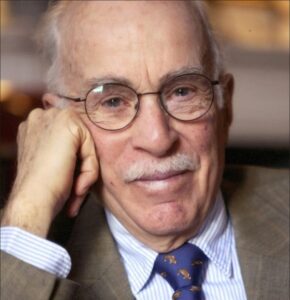
List of Roger Angell’s Books
A Day in the Life of Roger Angell
Five Seasons: A Baseball Companion
Game Time
Late Innings
Let Me Finish
This Old Man: All in Pieces
Once More Around the Park: A Baseball Reader
A Pitcher’s Story: Innings with David Cone
Season Ticket
Selected Shorts: Baseball, a Celebration of the Short Story
The Summer Game
Roger Angell Day – Celebrating Roger Angell – a 100th birthday celebration was held at the Friend Memorial Public Library in Brooklin, Maine, August 8, 2020 Photo by Bill Ray
Podcast: Play in new window | Download
Helen Zuman: Mating in Captivity [A Memoir]
September 8, 2020 by David
Filed under Non-Fiction, WritersCast
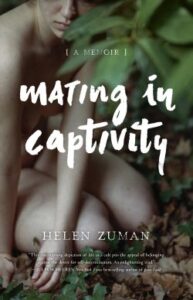 Mating in Captivity: A Memoir – Helen Zuman – 9781631523373 – She Writes Press – paperback – 248 pages – May 8, 2018 – $16.95 – ebook versions for sale at lower prices
Mating in Captivity: A Memoir – Helen Zuman – 9781631523373 – She Writes Press – paperback – 248 pages – May 8, 2018 – $16.95 – ebook versions for sale at lower prices
When I was in my younger hippie Whole Earth Catalog reading period of life, I became intensely interested in communes and alternative social structures, what are now often called “Intentional Communities.” Such utopian constructs have been in existence in America for many years (think about the Shakers in the 19th century) and the dream of a better way of living together than nuclear families persists to this day. I spent a couple summers on a working farm commune in Oregon, and over the years have studied and thought about the challenges and rewards of these communal work and living communities. Given the stresses that modern corporate capitalism places on individuals and families, it makes sense for us to explore different structures, despite the complexities of living together after the common experience of growing up in much narrower family units.
When Helen Zuman graduated from Harvard, searching for a better way to live, she too wanted to learn about and explore alternative intentional communities. After considering a variety of options, and getting a fellowship to study alternative structures, she moved to the North Carolina-based Zendik Farm in 1999. Initially she was unsure of whether it would be the right place for her, but it did not take her long to feel that she belonged. She gave the commune all her money and made the commitment to become a full time, permanent member of what she believed was a meaningful alternative to what the members called “dealthculture” – meaning anyone outside of the group itself. For her, as a inexperienced social being, the Zendik experience, based on sharing work, love, life and sex, made sense. But it turned out that the lived experience of the farm commune was not quite what it seemed, and without realizing it, Helen had become a member of a personal cult run by Arol, the Farm’s matriarch, who manipulated and controlled the members to meet her own needs at the expense of all else. Mating in Captivity is an illuminating and compellingly personal story of how a person can become a member of a cult, so simple, and then how one can escape, so difficult.
It’s ironic that the widespread desire for redefining social structures created by the tensions of modern capitalism has so often led to such fraught and misshapen group think. But Helen’s story is actually an optimistic one, as she was able to come through this experience and to make a life for herself that is, in fact, meaningful and defining outside the narrow structures laid down for us by the imperatives of industrial life.
This is Helen Zuman’s raw and honest confession and exploration of how a cult works and what it takes for an individual to escape one, and become her truer self. Mating in Captivity shows how cults work and both why people join and how they must escape in order to grow into fully functioning beings. I really admired her honesty throughout, and her storytelling is adept and strong. It’s a terrific memoir and one that readers of all kinds will appreciate.
Despite the ways in which things go off the tracks for us all too often, we can and must hope that a meaningful form of communalism is possible. If humans are going to live sustainably on this planet, it is likely a necessary adaptation for us to make.
“Just as the Zendik community, a cult, pulled Helen Zuman in and held her, her account of her time there will pull you in and hold you. Her clear-eyed observations of her fellow idealists—and of herself—are honest, compelling, and sophisticated.”
–Daniel Menaker, author of My Mistake: A Memoir
“How timely, how telling this story of an inexperienced young woman who fell prey to a cult because of the abuse to which she’d been subjected by male strangers. Only within the fold, where there were rules protecting the women, did she feel safe enough to explore her sexuality and learn to love. So she surrendered her possessions, her will, her youth. Read Mating in Captivity as a cautionary tale, one I hope will spark a desire to create a better world for our daughters.”
–Leah Lax, author of Uncovered: How I Left Hasidic Life and Finally Came Home
Mating in Captivity, which she calls “a cult memoir for smart people” is Helen’s first book. It was named a Kirkus Best Indie Memoir of 2018, was a finalist in Creative Nonfiction for the Community of Literary Magazines and Presses’ 2019 Firecracker Award, and was both first runner-up in memoir and a finalist for First Horizon and Grand Prize honors in the 2020 Eric Hoffer Awards. Other work has appeared in The New Farmers Almanac, in Communities and Livelihood magazines, and on the Foundation for Intentional Community’s website. She was born in London and raised in Brooklyn, and with her husband, Helen currently homesteads near the Hudson River in Beacon, New York.
Helen and I had a terrific and broad ranging conversation. I also recommend reading her post, linked above at the Foundation for Intentional Community site.
Buy the book on Bookshop.org and support independent bookstores!
Podcast: Play in new window | Download

